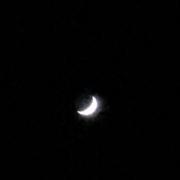
This year the world is lucky enough to experience three consecutive celestial phenomenons, known as super moons. With the first just having passed us this month.
So what is a super moon? Super moons are not rare, and occur several times a year, however, they are still slightly different to traditional full moons. Super moons make the moon appear brighter and closer to earth than usual. Essentially, a super moon occurs when a full moon is at its closest point to earth during its monthly orbit. In other words, this is when a new or full moon is closely coinciding with the perigee. Perigee comes from greek origins, with 'peri' meaning near, and 'gee' meaning earth. According to the original definition of a super moon, made by astrologer Richard Nolle in 1979, a full moon or new moon has to come within 90% of its closest approach to Earth to be dubbed a supermoon. In other words, any full moon or new moon that comes within 361,766 km, or less, of our planet, can be called a super moon. This is according to Nolle’s original definition.
This year we get to witness three consecutive super moons. The first took place on april 26th, with the second taking place on may 26th, and the third taking place on june 24th. Each super moon is given their own name. April’s super moon was named the pink super moon, May’s being known as super moon & lunar eclipse, and June’s being named super moon/ strawberry moon.
Super moons can appear to be 7-14% larger, and can look up to 30% brighter than a usual full moon.
This years first super moon in scorpio has bought a swell of emotions, astrologically speaking. The scorpion of the zodiac is associated with transformation, magnetism, and dynamic, emotional reactions. And with the full moon in scorpio, thoughts were reported to become deep, with everything suddenly feeling urgent.
We know the claimed astrological affects the moon supposedly has on us, but according to scientific information, how does the moon affect us? It has been recorded that animals follow the moon’s time cues, but there is no exact scientific information on how the moon affects us. Traditional full moons have been associated with strange behaviours such as cases of sleepwalking, violence, and even suicide. Super moons exert an increased gravitational pull on the earth, and many claim that they have been strangely affected by super moons. This is known as the lunar effect. According to the wikipedia definition, the lunar effect is a purported unproven correlation between specific stages of the roughly 29.5 day lunar cycle and behaviour and psychological changes in living beings on earth, including humans. However, scientists still don’t know the full extent of the impact on behaviour and physiology. Some studies have suggested that the moon has an affect on fertility and reproduction. But there is no clear research to claim the actual affects the moon has upon humans. There is still ongoing research on the true affects of the moon on people and their behaviour, and which phases of the moon have the greatest impact.
But until we have gained a greater understanding on the lunar cycle and it’s affects, remember to keep your eyes out for the next upcoming super moon!



























